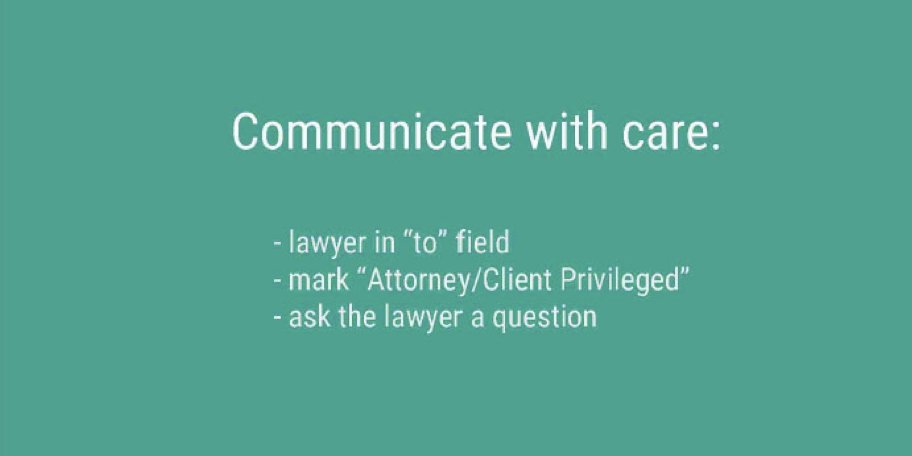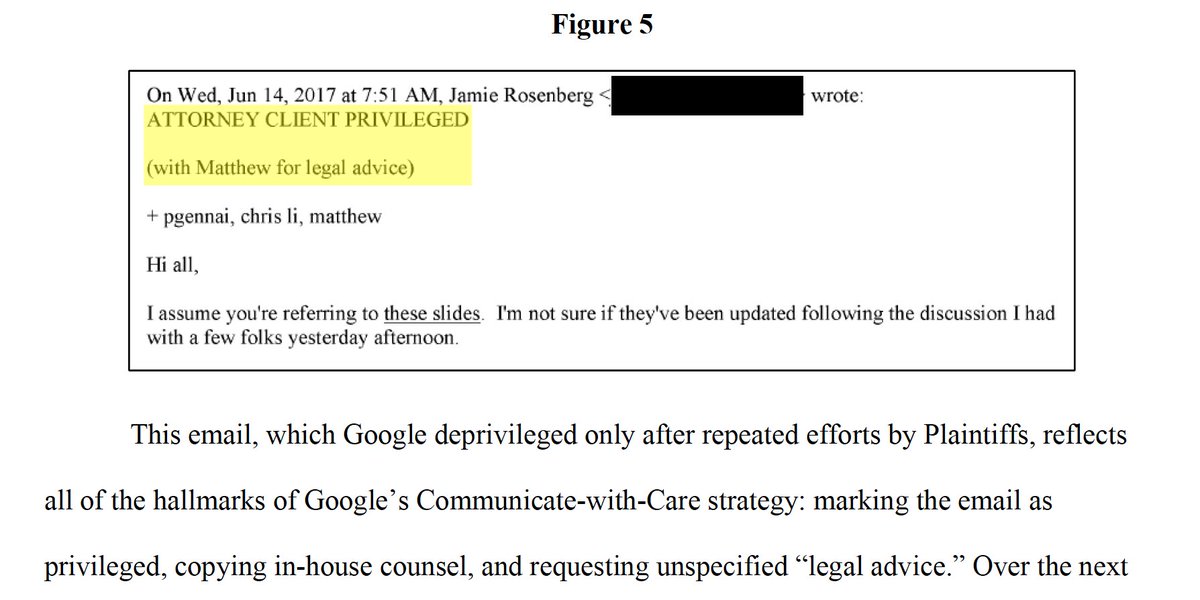
Woah. Court just ruled to certify the class in lawsuit alleging Facebook sold ads based on inflated potential reach and then fraudulently covered it up. I'll link to more background on the case (and damning discovery) but first we have a few words from the federal judge. /1 

Court does a nice job in a few sentences explaining Facebook told advertisers its "potential reach" in the US was 200 million people - note the word "people" is important - before they would narrow to a more targeted group leveraging Facebook's surveillance engine. /2 
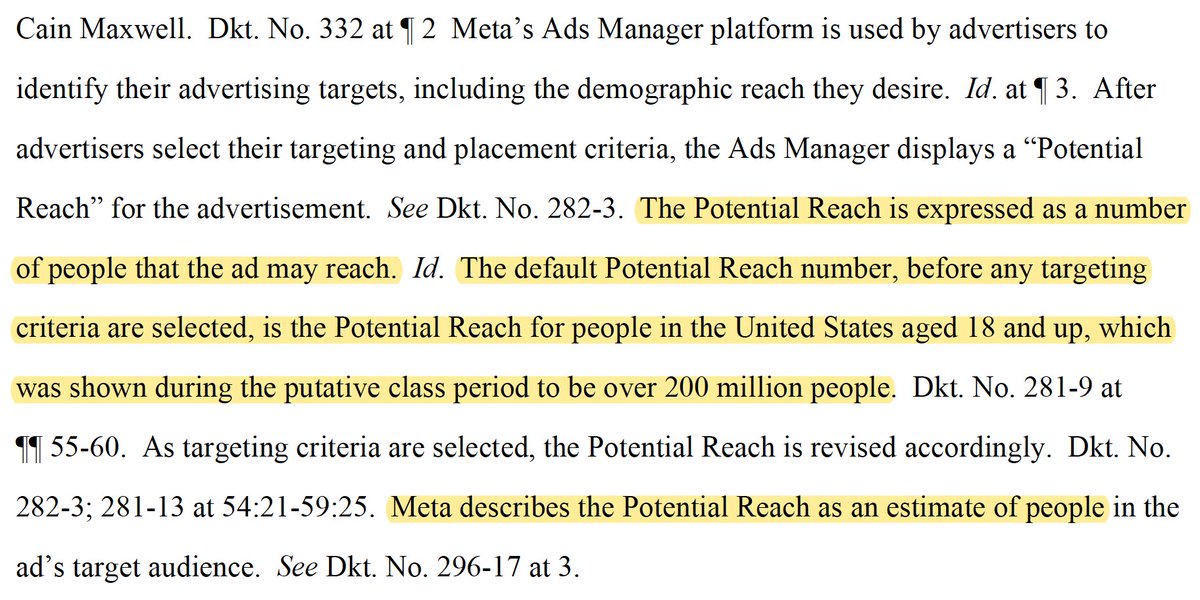
Facebook's (no, I won't call them Meta) lawyers first tried to suggest the class fails because it includes both small and large advertisers which went over like a lead balloon with this federal judge, errr "the objection is not well taken." /3 

Court rules that the class is typical as all advertisers saw the same "potential reach estimates inflated by a similar percentage." /4 
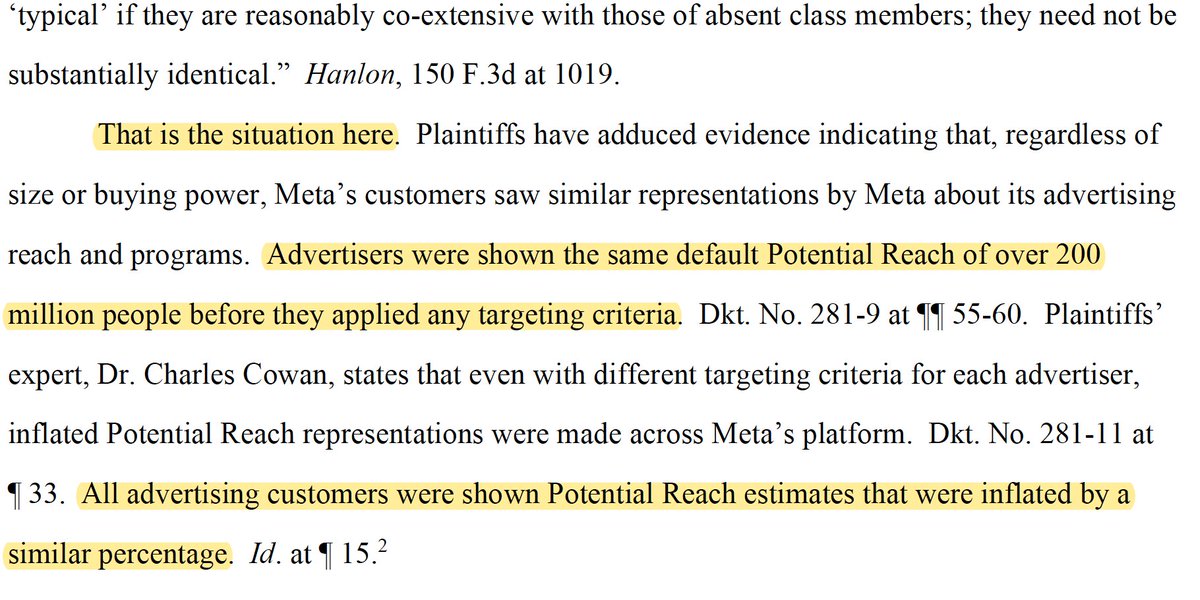
Court also ruled the class was adequate and the record hadn't found they didn't suffer a concrete injury among other reasons. Again, fail by Facebook. /5 
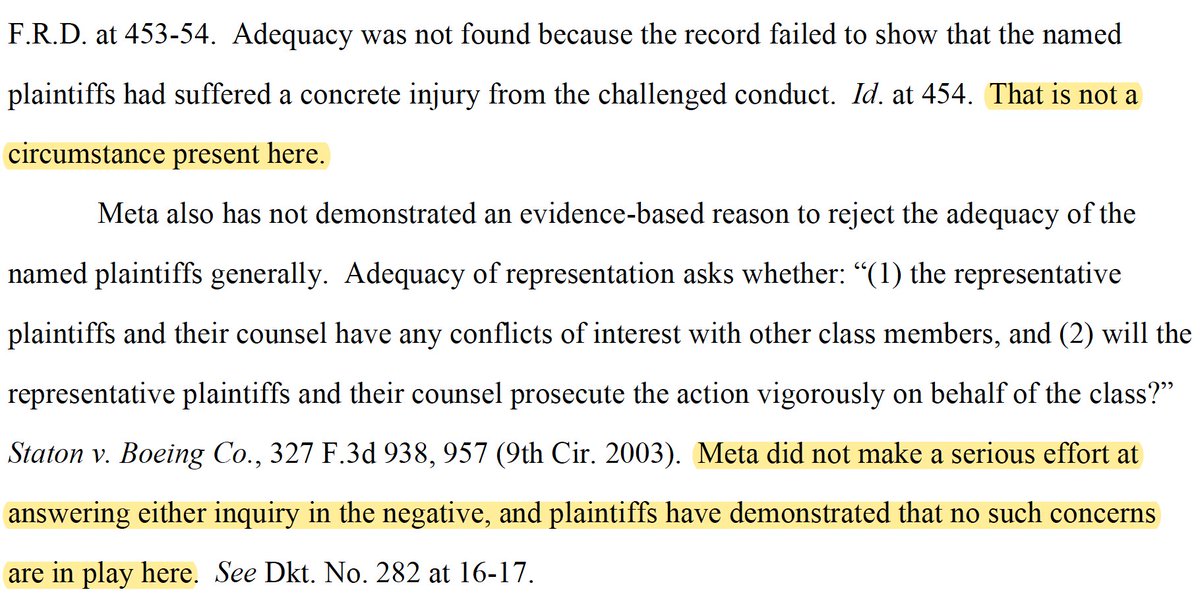
In fact, the plaintiffs had claimed they would not have spent certain budget $ on Facebook if they knew the Potential reach was inaccurate. So this is a big deal. /6 
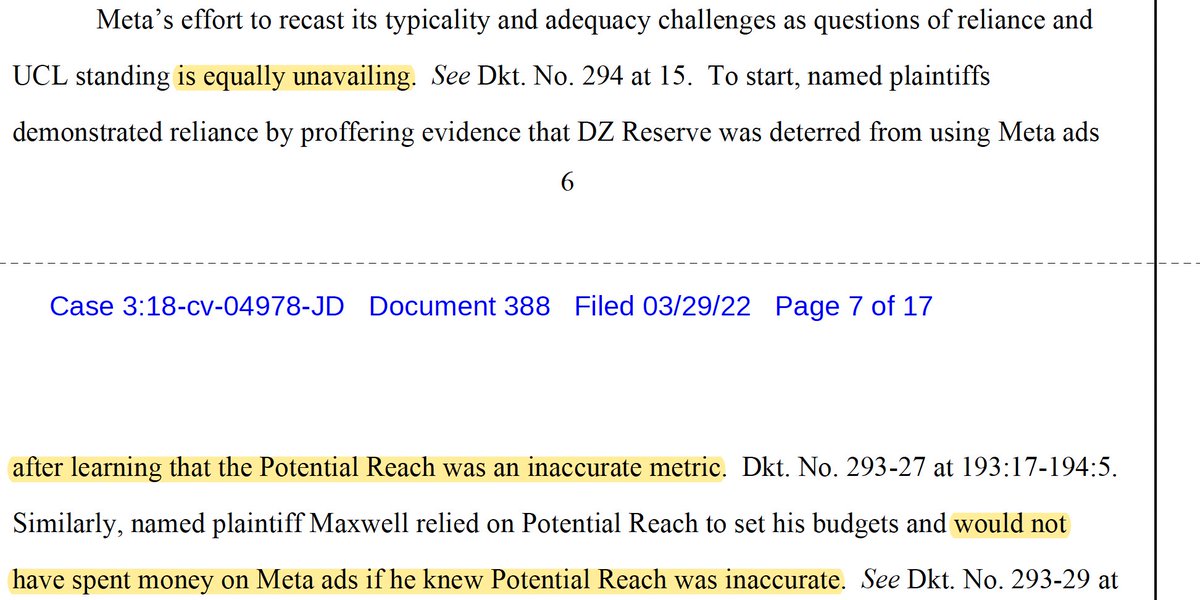
Court even uses the "word" deceived to describe the effect on the plaintiffs. Keep that word in mind as we continue along this journey to use a word loved by Sheryl Sandberg. /7 
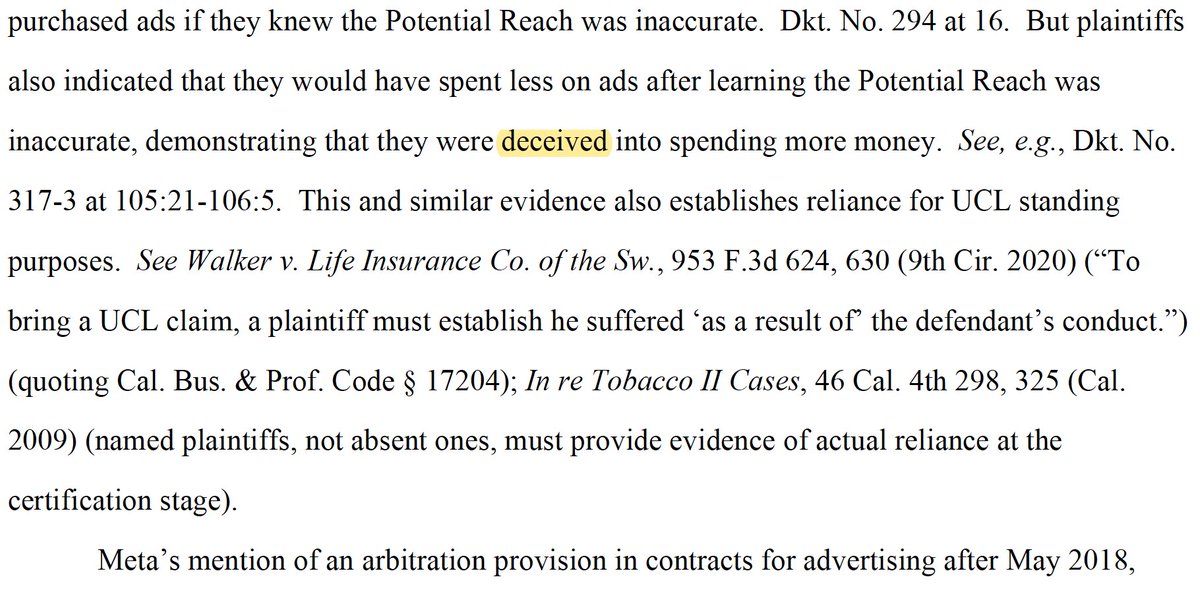
In the key question of whether Facebook's inflated potential reach mislead advertisers, the Court rules Facebook doesn't disagree but "hurls a grab bag of challenges to plaintiffs' ability of proving an answer in their favor." Ouch. /8 

Back to the word, "people," Court also notes Facebook doesn't dispute it originally described the inflated potential reach as "people" despite it representing "accounts" many of which were duplicate, fake, etc etc etc. /9 

Here we get to the Court pointing to docs showing Facebook's knowledge (the fraud allegation) and that this metric was "the most important number in its ads creation interface" impacting budget plans and strategies. /10 
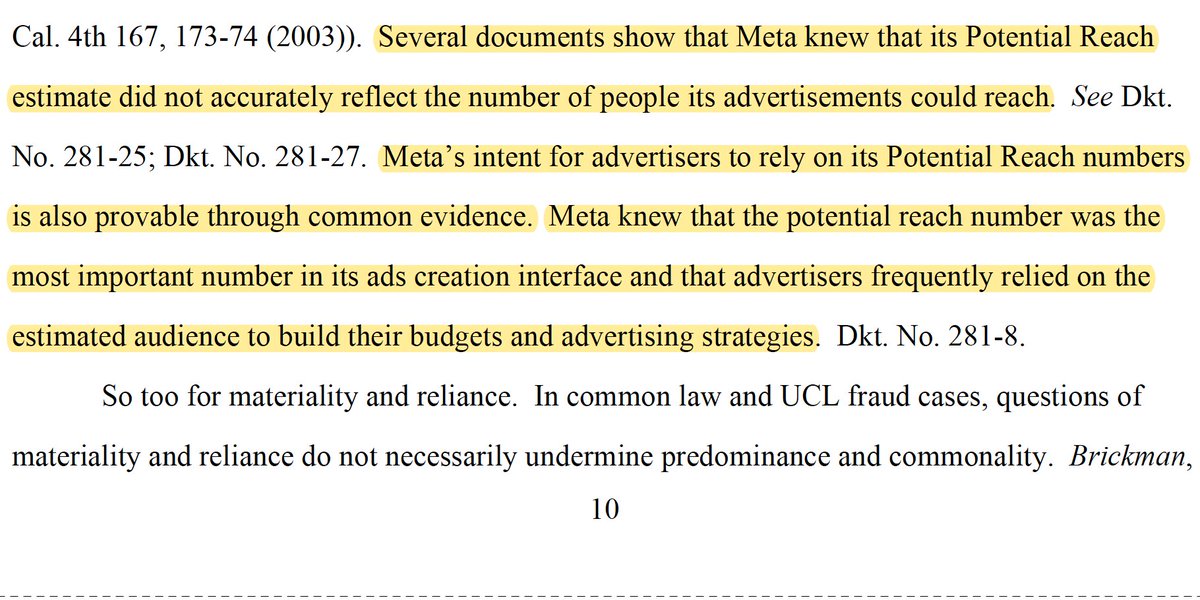
And this line from Court speaks to Facebook's market power and antitrust cases also in various courts along with the necessity of class as no reasonable person (read as advertiser in this case) is likely to be able to pursue this lawsuit on their own against Facebook. /11 

Bringing us to the order from the Court to certify the class in both the common law fraud claims against Facebook and injunctive relied under the unfair competition law. This case will include millions of advertisers on Facebook. /12 

ok, here is archived thread on this lawsuit. You should also know FB whistleblower filed related SEC complaint. FB's very top execs appeared to decide not to share at earnings (since it wouldn't hurt $ and ads biz unless advertisers knew! - yikes). /eof
https://twitter.com/jason_kint/status/1474228220350377992?s=20
Full order. Thanks, @cfarivar
https://twitter.com/cfarivar/status/1509150694720573440
• • •
Missing some Tweet in this thread? You can try to
force a refresh








